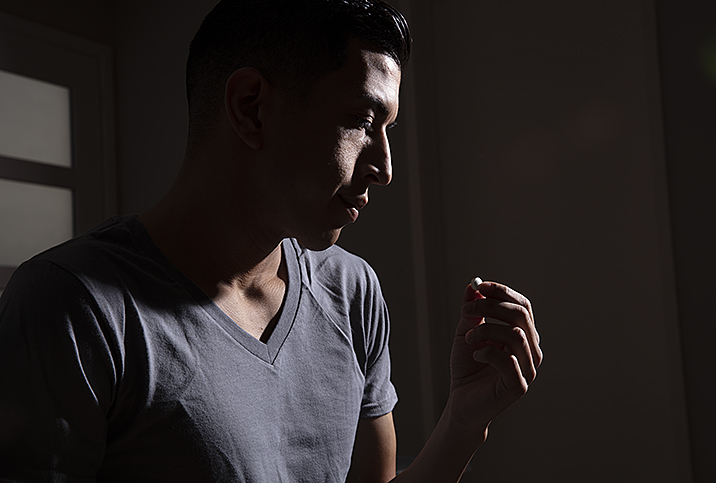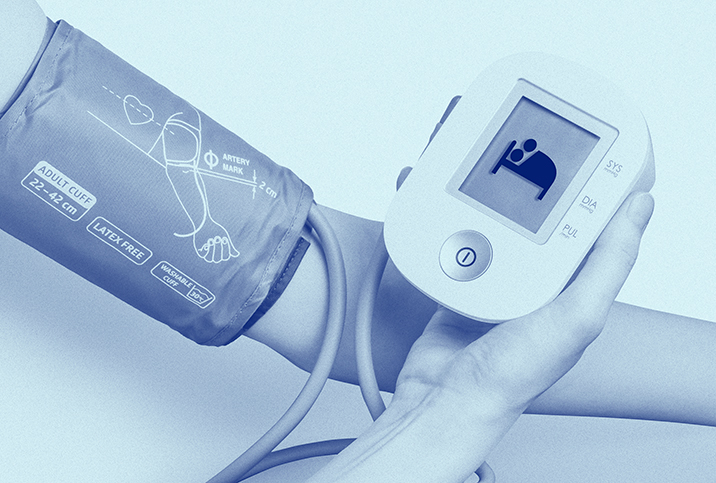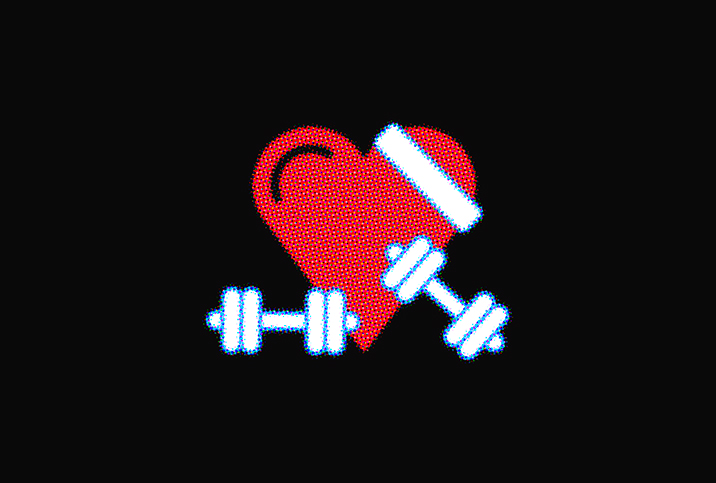How to Manage Your High Blood Pressure and ED

High blood pressure—hypertension—is a common condition. Nearly 50 percent of Americans over age 20 have hypertension or are taking antihypertensive medications, according to the Centers for Disease Control and Prevention (CDC). Unfortunately for men afflicted with high blood pressure, the disease is known to contribute to erectile dysfunction (ED).
In a 2012 article published in Current Opinion in Nephrology and Hypertension, researchers estimated that 30 percent of men with high blood pressure experience ED.
There are ways to manage both, but it's crucial to have a thorough understanding of each condition and how they interact with one another.
High blood pressure
Blood pressure refers to the amount of force with which the heart pumps blood into the arteries. With high blood pressure, the additional force causes stress on the walls of the arteries and blood vessels, and damages them over time.
This long-term harm causes the arteries to become narrower and less flexible, limiting blood flow. High blood pressure is considered a serious condition because limited blood flow can put an individual at risk of a heart attack and/or stroke.
Similarly, the narrowing of arteries and blood vessels limits the blood flow to the penis, leading to erectile difficulties.
Erections & high blood pressure
Erections are the result of the corpus cavernosa—two cylindrical chambers of spongy tissue that run alongside the urethra—becoming engorged with blood, which remains trapped by the compression action of a pair of muscle groups that limit how much blood can flow back out.
But if the penis isn't receiving enough blood flow, the man may be unable to get fully erect or maintain his erection long enough to have sex successfully.
An additional complication with what often turns out to be a mechanical, medical problem is the psychological trauma of even a single bout of ED, which can cause a man tremendous anxiety. For men, anxiety connected with sex can create a self-fulfilling prophecy that complicates his ability to get erections, so it's important to address the underlying causes directly and immediately.
Treating high blood pressure
There are myriad medications to help people regulate their blood pressure. Unfortunately for men who suffer from ED, some of these medications have known adverse side effects for sexual function.
These include beta blockers such as metoprolol (Lopressor), atenolol (Tenormin), propranolol (Inderal) and carvedilol (Coreg). Another class of hypertension drugs that interfere with erectile function is diuretics, or water pills.
Other drugs are less likely to cause erectile problems, including medications such as angiotensin-converting enzyme inhibitors, angiotensin II receptor blockers, alpha blockers and calcium channel blockers.
If you're being treated for hypertension, speak openly and honestly with your doctor about your concerns with regard to ED, and make sure you're getting the right kind of meds.
Giddy urologist Dr. Edwin Morales explains in depth how certain medications can cause erectile dysfunction. Watch the video here.
Treating ED & high blood pressure at the same time
Fortunately, the interlocking and interrelated causes of ED and hypertension mean you can do something about both at once through various lifestyle choices:
- Get some exercise: Exercise helps regulate your blood pressure and increases blood flow.
- Eat right: Maintain your blood vessel health by focusing on whole, healthy foods such as grains, fruits and vegetables, and limit red meat and alcohol consumption.
- Lose some weight: Some 79 percent of men with erectile dysfunction have a body mass index (BMI) of 25 or greater. Losing weight can help both ED and blood pressure woes.
- Talk to someone: Psychological issues are often unrecognized contributors to high blood pressure and ED. Stress, anxiety and depression are all linked to both conditions, so talking to a therapist can go a long way toward helping you sort these issues.
Conclusions
It's well known that erectile dysfunction and high blood pressure are connected. The silver lining to this unfortunate correlation is that men can take proactive steps toward alleviating both at the same time.
Looking for ways you can attack the underlying causes in terms of lifestyle choices, such as diet and exercise, can make a real and immediate difference in the bedroom.


















